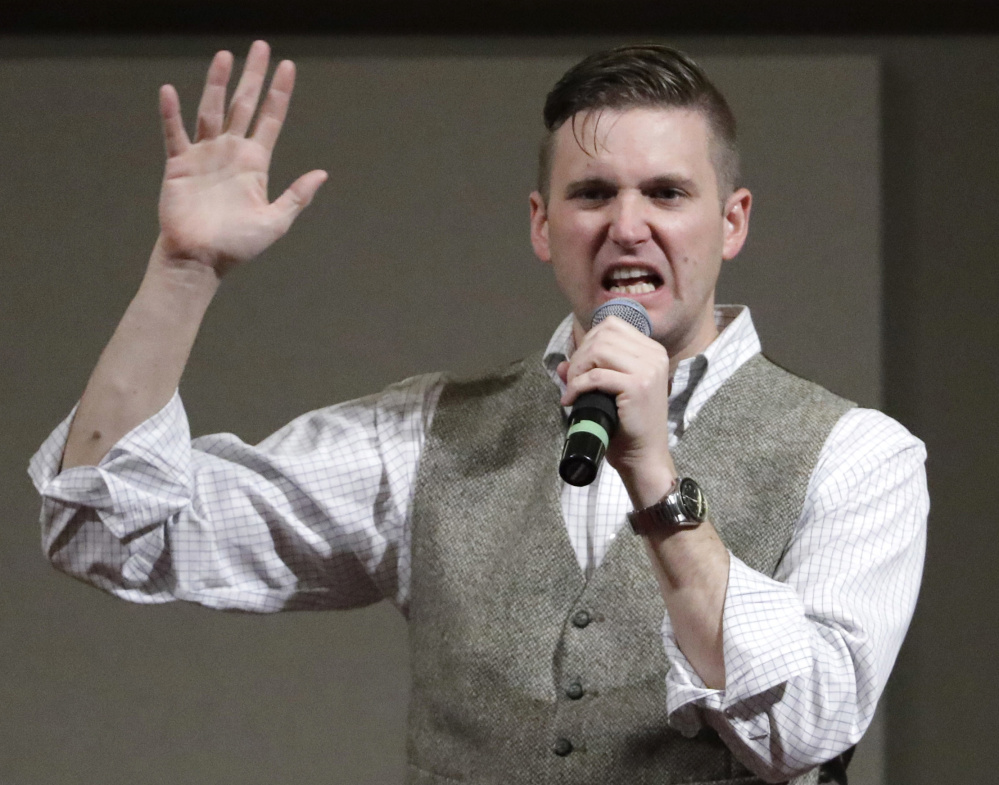Pennsylvania State University has denied a request by white nationalist Richard B. Spencer to speak on campus, the university announced Tuesday.
It was the fourth university to deny him a platform in recent days, citing security concerns after a “Unite the Right” rally that featured him as a speaker turned violent in Virginia.
Earlier this month, hundreds of Spencer’s followers marched through the University of Virginia’s campus carrying torches and shouting white-nationalist slogans, the beginning of an ideological clash that turned fatal the next day in Charlottesville when a man drove into a crowd of people protesting white supremacy, killing one woman and injuring many others. Two police officers also died when their helicopter crashed.
Spencer, who is president of the National Policy Institute, had asked to speak at Penn State in the fall.
Penn State’s president, Eric Barron, said in a written statement that Spencer’s views are “abhorrent and contradictory to our University’s values” but that the institution fully supports the right to free speech. However, he said, “the First Amendment does not require our University to risk imminent violence.” He said police had determined the event was “a major security risk,” and that risk, not the content of the speech, was the reason for denying the request.
In the days after the Charlottesville rally, other universities have made similar decisions. The University of Florida, for example, denied a request by the National Policy Institute to rent space on campus in September after assessing potential risk and social-media statements such as “The Next Battlefield is in Florida.”
Last week, Texas A&M University denied a “white lives matter” rally, organized by a former student named Preston Wiginton who said he was inspired by the “Unite the Right” rally in Charlottesville. Wiginton had invited Spencer to speak at the event.
Michigan State University also denied a request by Spencer’s group to rent space on campus for an event in September.
“They’re using what’s known as the ‘heckler’s veto,'” Spencer said. “They’re citing safety concerns as a way to suppress free speech. Legally that just doesn’t hold water. . . .
“There’s a very recent federal decision involving me and Auburn that is clear and unambiguous.”
In April, a federal judge reversed Auburn University’s cancellation of a Spencer event.
Send questions/comments to the editors.



Success. Please wait for the page to reload. If the page does not reload within 5 seconds, please refresh the page.
Enter your email and password to access comments.
Hi, to comment on stories you must . This profile is in addition to your subscription and website login.
Already have a commenting profile? .
Invalid username/password.
Please check your email to confirm and complete your registration.
Only subscribers are eligible to post comments. Please subscribe or login first for digital access. Here’s why.
Use the form below to reset your password. When you've submitted your account email, we will send an email with a reset code.